Photo by Icebreaker Mackinaw Maritime Museum
With Lake Michigan on one side and Lake Huron on the other side, Mackinaw City is a true Great Lake’s spot. The area also boasts many historical attractions and family-friendly activites.
The Ice Breaker Maritime Museum was first the U.S. Coast Guard Cutter Mackinaw WAGB-83 and was built in Toledo, Ohio. She was launched in 1944 and served from Cheboygan, Michigan.
The museum offers tours of the engine room, captain’s quarters, ward room, bridge, and mess hall while explaining the history of the ship’s long career.
The Historic Mill Creek is the site of the early 1800’s mill that supplied lumber for much of the area’s buildings. Overlooking Lake Huron, the mill, and a grist mill, were used into the mid 1800’s. The park is a National Registered Historic Site and opened to the public as part of the Mackinac State Historic Parks in 1984.
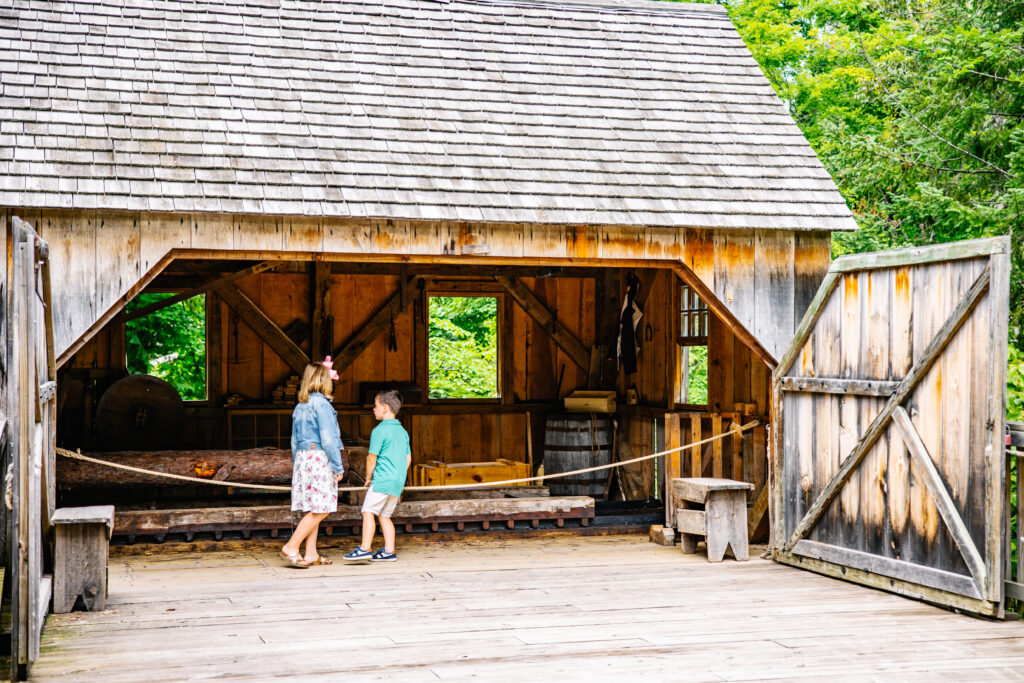
McGulpin Rock, near Mackinaw City in Northern Michigan, has been used as a navigational tool since before the Pilgrims landed. In 1615, French explorers noted the huge rock near the Straits of Mackinaw. It’s nine feet tall and weighs in at 54 tons, and is located down the hillside from McGulpin Point Lighthouse, just outside Mackinaw City. The boulder can be reached by walking down the path behind the lighthouse or driving down the road just outside the entrance to the lighthouse.
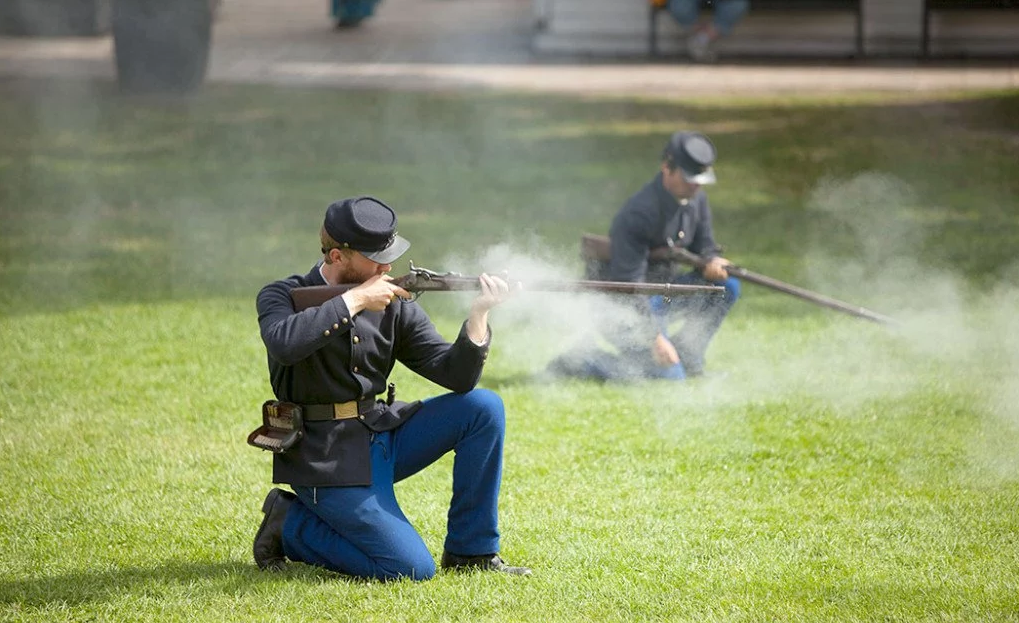
Fur traders set up shop in the Northern Michigan’s Straits of Mackinac in the 1600’s and by the 1700’s, the area was a bustling trading center. Colonial Fort Michilimackinac was built by the French in the early 1700’s and it was occupied from 1714-1781 by the French and the British.
The reconstructed fort is a major tourist destination and historical site. Ongoing archaeological work has continued to uncover artifacts and offer insight into life at the Colonial setting.

Built during World War II to haul heavy materials during the winter, the Icebreaker Mackinaw was in service for 62 years then became a museum.
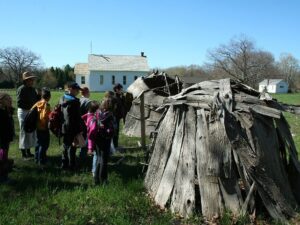
Mackinaw City’s Heritage Village lets visitors explore life in the Straits of Mackinac as it was during the era of 1880-1917.
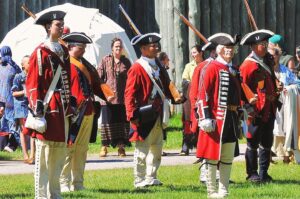
While it may be the gateway to Mackinac Island, Mackinaw City offers it’s own set of awesome festivals and events.
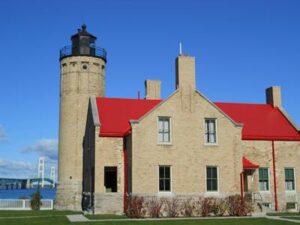
With Lake Michigan on one side and Lake Huron on the other side, Mackinaw City is a true Great Lake’s spot with lots of things to do!
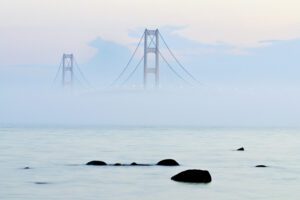
The Mackinac Bridge is the 10th largest suspension bridge (over water) in the world and connects Michigan’s Upper and Lower Peninsula.

The Headlands, just west of Mackinaw City, is one of six International Dark Sky Parks in the U.S. and one of nine in the world.